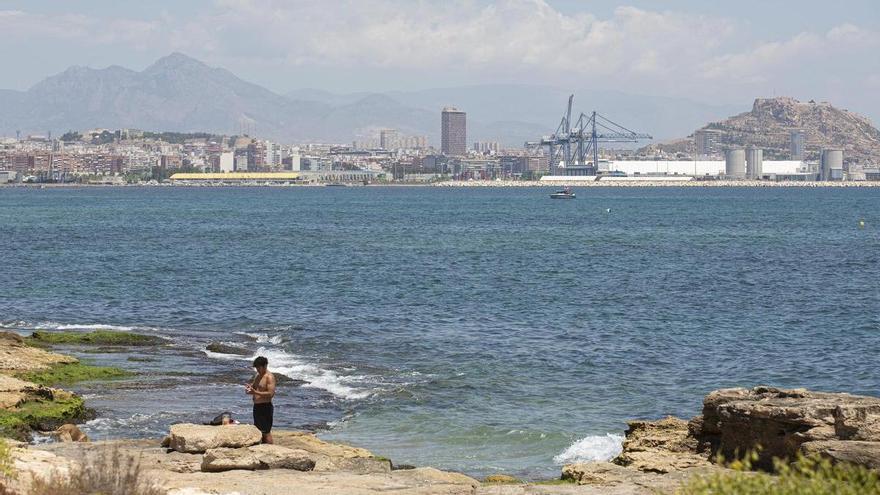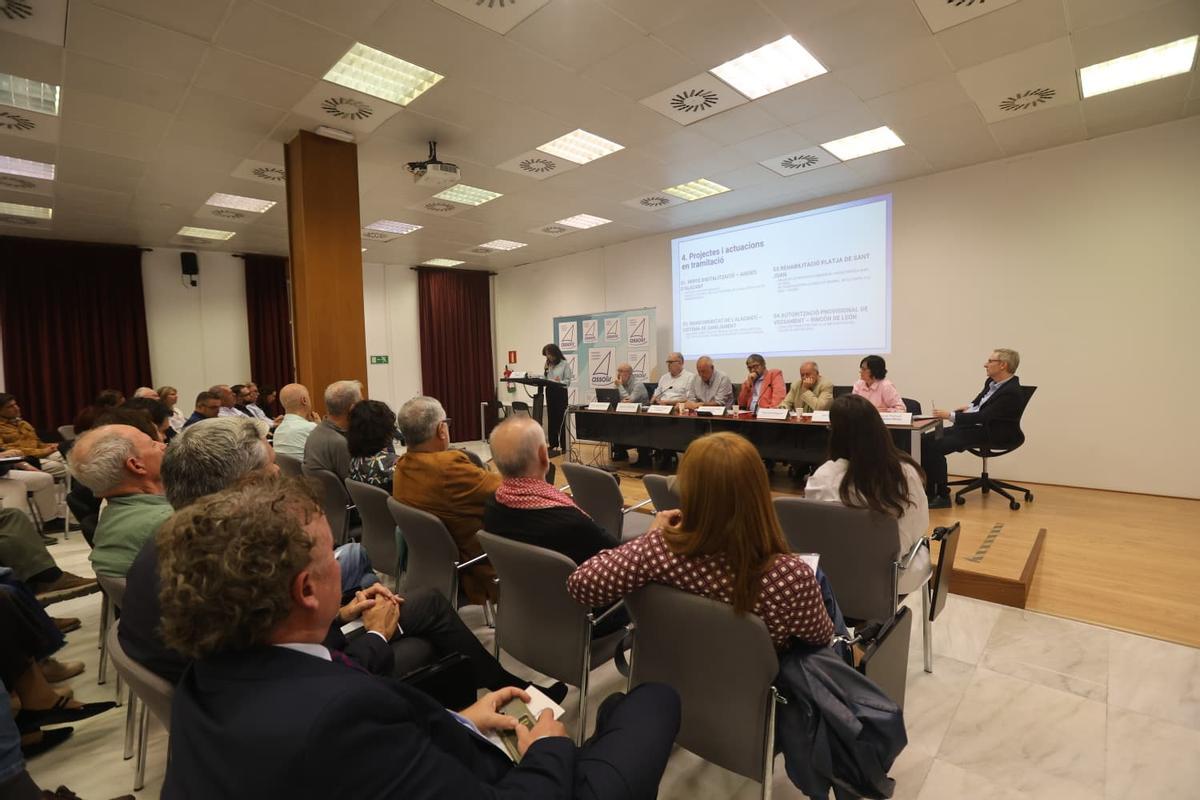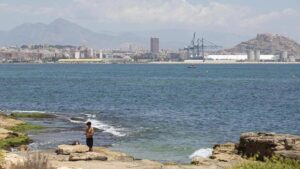
Optimize the use of water in a geographical area in which the drought It is structural. reachself-defined as “association for sustainability and resilience”, has published a report on “discharged to the coast of Alicante” in which it analyzes different aspects to “improve” when it comes to treating water resources and making appropriate use of them according to the circumstances.
Around this study, the entity called an event this Thursday at the University Headquarters of the San Fernando street of Alicante, in which experts in the field participated to make contributions on these aspects and also the vice mayor of Alicante, Manuel Villar.
According to Assolir, the coast of the municipality of Alicante suffers two problems: “The arrival of untreated wastewater discharges during episodes of intense precipitation”, due to “lack of drainage and rainwater storage capacity”; and “the possible negative impact on the marine environment due to discharges of treated water”, which ask that they be used for the benefit of irrigators.

A snapshot of the round table held this Thursday afternoon in Alicante / Pilar Cortés
The entity organizing the event and author of the report interprets that this situation is “attributable to the lack of execution, or delay, of necessary projects“to repair “obsolete infrastructure”, alleviate the “lack of control over industrial and domestic discharges” or avoid “leaks that increase the conductivity of wastewater” due, they interpret, to institutional omission. “There is a lack of results and understanding on the part of the administrations,” it stated Glória Gómezrepresentative of Assolir who moderated the event.
Act
With three projects currently in the pipeline designed to remedy this situation, Assolir gives special importance to a fourth action pending completion. This is the “Zero Discharge” project, designed so that the 20 cubic hectometers that, according to the entity's calculations, are “discharged into the sea” from the Alicante treatment plants of Corner of Leon y Mount Orgegia are destined for agriculture.
The project was going to be financed with Next Generation funds, but it was late
The project, considered strategic, has the participation of the Government through the Ministry of Ecological Transitionof the Generalitat and of Alicante City Counciland is in the environmental administrative processing phase. If its continuity is not justified in July 2026, Assolir recalls that “all the investments and efforts made will be lost, since the maximum execution period established was between 2023 and 2026,” and they highlight that the initiative was recognized with the Innovation Award in the Rei Jaume I Award for Professional Promotion of Agronomic Engineeringawarded by the Official College of Agricultural Engineers of Levante.
The use of these waters would reduce dependence on transfers in agricultural consumption
Francisco Zapatahead of the Hydraulic Infrastructure Service of the Generalitat, recalled that this project “was going to be financed with funds Next Generationbut it arrived late and the ministry has been processing it for more than two years.” For its part, Antonio Prietoprofessor at the Department of Geographic and Regional Analysis of the University of Alicante (UA), highlighted that the use of these waters “would reduce dependence on transfers in agricultural consumption and the regions of l'Alacantí, Medio Vinalopó and even a part of Elche would benefit: it is a way to be self-sufficient.”
Solutions are needed due to the very important entry of nutrients that come from the Rincón de León treatment plant
The professor of Biology at the UA José Luis Sánchez Lizaso asked to provide “solutions” to “the very important input of nutrients that come from the Rincón de León treatment plant”, in reference to the discharged water not reused, while Aldeguer's Manuelformer general director of Water of the Generalitat during the Botànic period, pointed out the “lack of leadership on the part of the Generalitat and the City Council” to complete the project. “Despite the verbal support shown, there has been no action,” he laments.
Despite the verbal support shown by the City Council and the Generalitat, there have been no actions
He also participated in the table Sol Garcinpresident of the Gran Vía Sur Neighborhood Associationwhich referred to the “chronic spills” throughout the Bay of Alicante and regretted “the works to put an end to this situation remain unexecuted”, pointing out that “there is a legislative framework to prevent this from happening, but it continues to occur with the consequent degradation of the marine environment and biodiversity with the spills every time there is rain, like last October 9”.
The works to end this situation remain unexecuted
Finally Jose Manuel Lazaroresponsible for Planning and Technical Project Office of Waters of Alicantefocused on clarifying some technical aspects of the Assolir report and explained that “the operation of the urban drainage system of the city of Alicante is correct, and adequate maintenance of collectors and discharge control is carried out.” He also emphasized the “good functioning” of infrastructure such as the anti-pollution depot of Saint Gabriel and the La Marjal Parkand mentioned future facilities with construction projects in the drafting phase.
The operation of the urban drainage system of the city of Alicante is correct
He stressed, on the other hand, that “all the points of overflows in rain that occur in the Maritime Terrestrial Public Domain in the surroundings of the Sheep Ravine are included in the current discharge authorization of the Rincón de León wastewater treatment plant”, and assured that it was complying with the regulations that regulate the management of discharges and the prevention of pollution, as well as the preparation of the inventory of overflow points or the preparation of the Comprehensive Sanitation System Management Plan “where the structural measures that are necessary to be executed within the deadlines set out in the regulations will be proposed.”
Subscribe to continue reading

